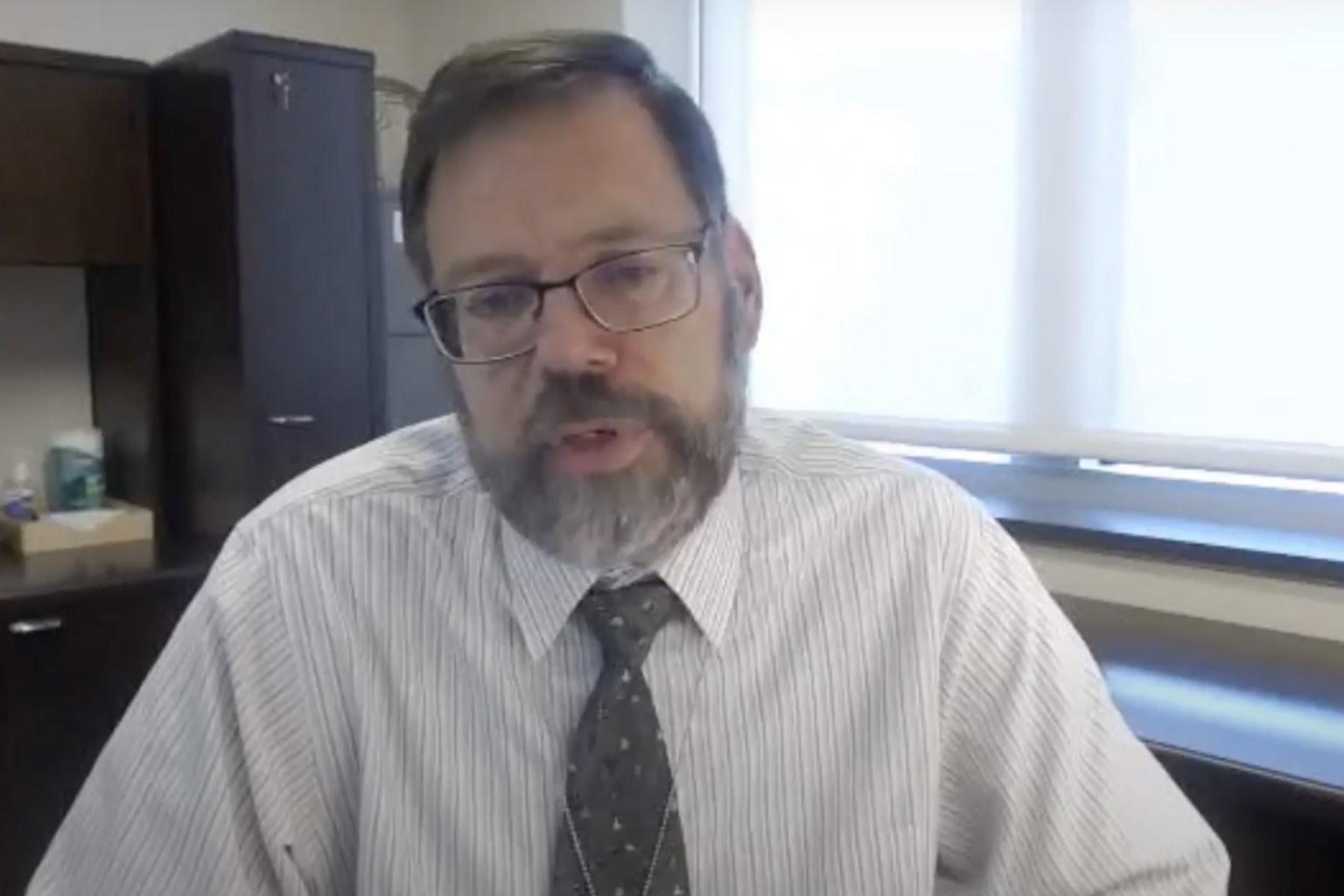Singapore's climate innovations, diplomacy, recognised at global stage
Sign up now: Get ST's newsletters delivered to your inbox

Dr Jonathan Pershing, senior advisor to the US' Special Presidential Envoy for climate John Kerry, speaking with reporters over Zoom.
PHOTO: ZOOM
Follow topic:
SINGAPORE - Singapore's profile on climate change is gaining recognition on the international stage.
Last week, a senior US official said that Singapore's efforts towards innovation to deal with the issue could offer lessons for other cities.
The Republic's reputation of being an honest broker has also gotten the attention of the international community.
Earlier this month, Minister for Sustainability and the Environment Grace Fu was invited by the British presidency of the upcoming United Nations (UN) climate talks in November, to co-facilitate international negotiations on an issue that nations have failed to reach an agreement on for years - The establishment of international carbon markets.
This comes after Prime Minister Lee Hsien Loong was invited to the leaders summit on climate convened by US President Joe Biden in April.
PM Lee was one of 40 leaders invited to take part in the two-day virtual event - alongside leaders of Brazil, China and France, among others.
Asked by The Straits Times during a virtual press conference on May 11 on what the US envisions Singapore's role to be in the global fight to dealing with the planetary crisis, Dr Jonathan Pershing, senior advisor to the US' Special Presidential Envoy for climate John Kerry, said:
"Singapore, as a city-state, has got some of the most innovative structures in the world around the management of urban planning and design, looking at... (getting to a) deep decarbonisation pathway while sustaining a very liveable, workable city."
He added: "How does that fit? How do you take advantage of those kinds of lessons?"
Singapore Management University Associate Professor Winston Chow, a lead author for the chapter on cities in an upcoming UN climate report, said the Republic's urban solutions are extensive and can be exported, especially to other rapidly growing cities in Asia and the tropics.
For instance, Singapore is pushing to develop its neighbourhoods in a way that can also reduce urban heat, he said. This is being done through the use of greenery, shading or design that promotes wind flow, added Prof Chow, a principal investigator of the CoolingSingapore initiative.
There are also efforts to reduce emissions through more energy efficiency and low-carbon construction methods.
Singapore's targets to cut its carbon footprint should be more ambitious, Prof Chow said.
But Dr Pershing's remarks show the international community could also find Singapore's solutions to adapting to the impacts of climate change - such as rising temperatures - valuable, Prof Chow noted.
"Singapore's broad, multi-sectoral approach is something that other cities can learn from," he added.
Meanwhile, Ms Fu will co-facilitate ministerial consultations on Article 6 of the Paris Agreement - which revolves around how countries can reduce their emissions using international carbon markets- with her Japanese counterpart Minister of the Environment Shinjiro Koizumi.
Carbon markets enable countries and firms to work together to reduce emissions in a cost-effective way, said a spokesman for the National Climate Change Secretariat (NCCS). Carbon credits can also provide a decarbonisation pathway for sectors that face more difficulties in reducing their emissions, even as low-carbon technologies are being developed, he added.
But nations are finding it difficult to agree on a number of areas.
A key one preventing global consensus from being reached is how to ensure that credits used in the buyer country's climate pledge is not double-counted in the seller country's emissions profile.
As co-facilitators, Singapore and Japan will listen to the views of different parties on the crunch issues under Article 6 and work collectively towards resolving them, the NCCS spokesman said.
"We recognise that it will not be easy to resolve these complex issues, especially since parties before us have tried and failed in the past two (UN climate conferences) in 2018 and 2019 to conclude the negotiations," he added.
"That said, we stand ready to work with all parties to try to land on a credible and balanced outcome under Article 6. It is a heavy responsibility placed on Singapore and Japan but we will do our best to advance progress, with the support of all parties."

